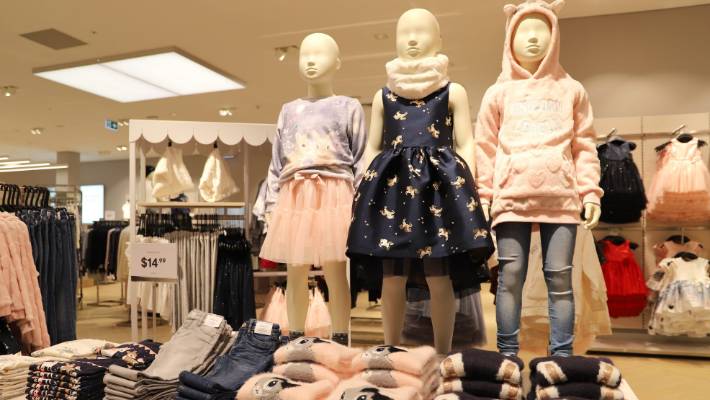
David Jones launched in Wellington in 2016, almost two centuries after the first store opened its doors in Sydney. That's about the same time lag as Tiffany's, which debuted in Auckland in 2016 after being founded in New York in 1837. Kiwis could be waiting forever for the first Costco or Aldi.
So, by New Zealand standards, the 2016 arrival of apparel giants H&M (founded 1942) and Zara (1975) was lightning fast.
Both chains are leaders in "fast fashion", a contemporary term for inexpensive clothes that are quickly mass-produced to reflect the latest catwalk trends. But while Kiwi shoppers are excited that these hip global brands have finally graced our shores, there are signs that the fast fashion trend is already past its peak.
Blame Generation Z, or people aged between 7-to-22, who are about to take over from millennials as the largest group of consumers in the world.
Already they're proving to be a tricky group for retailers and marketers to pin down. Gen Zers have never known a world without the internet, and they're far more likely to take brand cues from social media influencers than expensive prime-time TV ads.
In Massey University's Big Issues in Retail Survey, New Zealand retailers ranked social media as the most important communication channel while TV came in a distant eighth. That makes it harder for big brands to dominate the conversation.
Another feature of Gen Z is that they grew up in the aftermath of the 2008 global financial crisis, an event that shaped their early views on spending and consumerism.
Surveys have shown that the kids of Gen Z are generally more tight-fisted than their millennial predecessors. Even though the economy has since recovered in most parts of the world, their frugal spending habits have endured.
The shadow of the financial crisis has also made Gen Z more critical of companies with deep pockets and a murky moral compass. This is particularly true when it comes to the environment and matters of sustainability.
No wonder many traditional companies are worried, from gas-guzzling car companies to restaurants that serve battery eggs and non-Fair-trade coffee.
The fast fashion industry is similarly vulnerable to the ethical consumer trend. The concept of wearing something for a season and then throwing it away doesn't sit comfortably with those who wish to live more sustainably.
News headlines accusing H&M of burning unsold inventory haven't helped fast fashion's image.
Although the company said it "rarely" burns clothes, and H&M isn't the only apparel maker to burn or shred unwanted stock, the perceptions of waste and environmental damage are already embedded in consumers' minds.
A survey by fashion reseller thredUP found that a quarter of American millennials and Gen Zers planned to ditch fast fashion in 2019 for ethical reasons.
As thematic investors, we know that every cloud has a silver lining. So, if the world's youngest consumers are turning their backs on fast fashion, where are they buying their clothes?
It's not just online. In fact, most Gen Zers prefer to buy apparel from physical stores, and they're more likely to visit shopping malls than millennials.
Surprisingly, second-hand clothing is one of the new growth trends in apparel, fuelled by Gen Z's appreciation for value, quality and sustainability.
According to thredUP, one in three Gen Zers in the US will buy used clothing in 2019, a much higher ratio than for older generations. Recycling a unique piece of second-hand clothing is not just affordable and ethically-minded, it's cool.
The sustainability trend has also given rise to new clothing brands that put ethics at the heart of their operations. For example, New Zealand label Kowtow is building an international presence through its creative use of sustainable fibres and commitment to fair trade manufacturing.
Gen Zers are still buying clothes. They're just not buying clothes like their parents.
Another thriving apparel trend is the continued growth of US-born discount and off-price chains like TJ Maxx and Ross Dress For Less. Off-price retailers sell racks of excess stock and product returns from other apparel companies, and with a little digging, shoppers can find quality brands like Ralph Lauren and Michael Kors at knockdown prices. The "treasure hunt" experience appeals to younger consumers who want a little more than traditional stores have to offer.
In New Zealand, The Warehouse is emulating the off-price strategy through its "Red Rack" areas, where brands like Adidas and Calvin Klein are sold at steep discounts. The Warehouse likely has a nervous eye on Australia where TJ Maxx has been operating since 2017 (under the name TK Maxx).
The proof is in the share prices of retail companies. Over the past three years, shares of TJX (owner of TJ Maxx) and Ross Stores have increased by about 30 per cent and 70 per cent respectively, while shares of Inditex (owner of Zara) and H&M have fallen about 15 per cent and 40 per cent.
Of course, fashion and consumer tastes are constantly changing, and while investments in off-price stores might look smart now, the tailwinds won't last forever. After all, it was only five years ago that people were talking about fast fashion taking over the world. So, when are the retail winds likely to shift again?
Perhaps when TJ Maxx announces the opening of its first New Zealand store. It seemed to mark the peak for Zara and H&M, so it's as good a lead indicator as any, and not entirely without logic (companies must be desperate for growth to stretch their store footprint this far).
Although given it's only been 43 years since the first TJ Maxx opened in the US, we could be waiting a while yet.
* Nathan Field runs the Global Thematic Fund at Kiwi Invest, a wholly owned subsidiary of Kiwi Wealth. This column is general in nature and should not be regarded as specific investment advice.
2026 © Cointega. Política de privacidad Política de Cookies